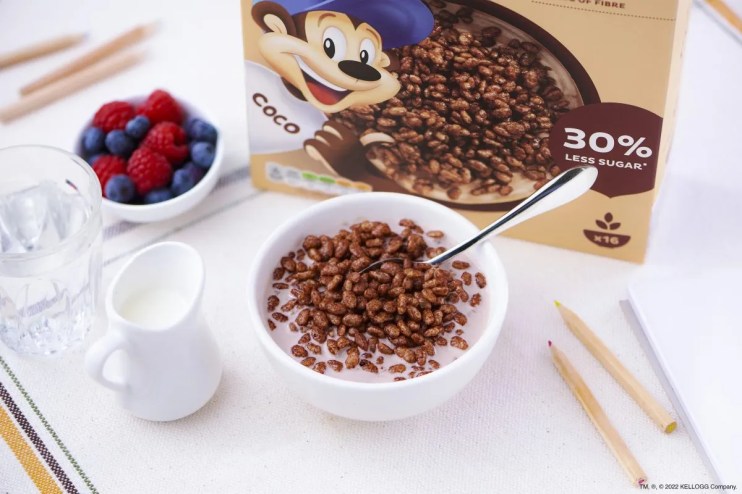Kellogg’s serves up loss ahead of Mars mega deal

The combined UK operations of Kellogg’s have fallen to a loss despite the increasing popularity of its cereals and Pringles boosting sales further past the £1bn mark.
Kellogg’s runs two separate companies in the UK from its headquarters in Salford: Kellogg Marketing and Sales Company (UK) and Kellogg Company of Great Britain.
As a result of group’s ultimate parent company splitting and rebranding last year, favourites such as Pringles, Pop-Tarts and Nutri-Grain now sit under the Kellanova banner alongside the likes of Frosties, Special K and Coco Pops.
For 2023, newly-filed accounts with Companies House show that Kellogg Marketing and Sales Company (UK) reported a turnover of £975.5m, up from the £913.9m it achieved in 2022.
Its pre-tax profit also increased from £24.1m to £28.5m over the same period.
However, accounts for Kellogg Company of Great Britain show its turnover remained flat at £143m and it went from making a pre-tax profit of £13.6m to a loss of £61m.
Despite the loss, Kellogg Company of Great Britain issued a dividend of £176.1m in the year.
The accounts have only just been filed with Companies House, later than the 30 September deadline.
Kellogg’s to cut hundreds of UK jobs
The results come after Kellogg’s confirmed plans in May to close its Manchester-based factory with the loss of hundreds of jobs.
The business said it would close its Trafford Park factory towards the end of 2026 with the loss of around 360 roles.
The company’s Wrexham factories and Salford headquarters, which currently employ around 1,000 people, are not impacted by the news.
The accounts have also been published after it was announced in August that Mars, whose brands include M&M’s, Snickers and Skittles, was to buy food giant Kellanova for $35.9bn (£27.9bn).
Kellanova was created when the Kellogg Co, which was formed in 1906, split into three companies.
The deal is expected to close in the first half of next year.
In a statement signed off by the board, Kellogg Marketing and Sales Company said: “Growth in turnover was primarily driven by an increase in snacks net sales, led by sustained momentum in Pringles, driven by innovation, effective advertising and successful consumer promotions.
“Cereal net sales were also up in the year, however, partially offset by unfavourable foreign currency.
“Reported operating profit increased primarily due to overall higher sales, which was driven by both volume and price mix.
“The directors are confident that with the pipeline of commercial initiatives, product innovation and various growth and efficiency programmes, the business will be well positioned for the future.”
